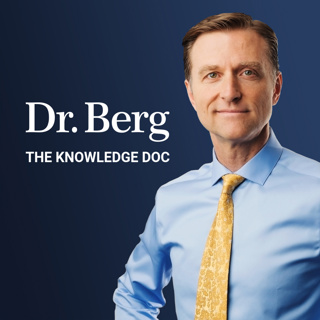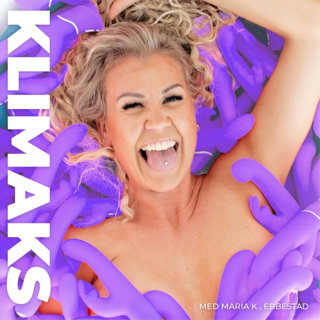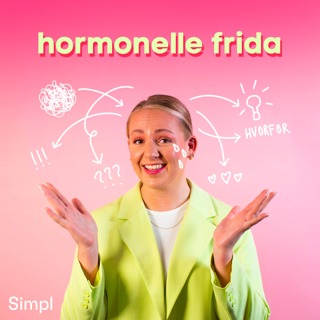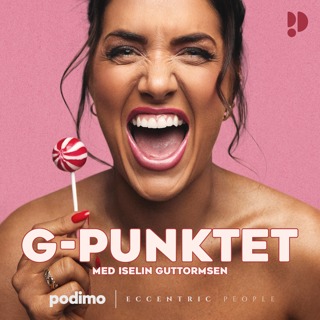
How to Get Rid of Blackheads and Sebaceous Filaments - Dr. Berg
Let's talk about sebaceous filaments, the common misconceptions surrounding them, and why they keep coming back. We will also explore the root causes and how to address these issues to achieve long-term results. Many people mistake sebaceous filaments for blackheads and try to remove them by using tweezers or other methods. However, this can damage the skin. The presence of sebaceous filaments and blackheads is often linked to the overproduction of sebum. This production is regulated by a hormone called androgens, which can increase during puberty, pregnancy, or other hormonal imbalances. So, how do we address the root cause of sebaceous filaments? One way is to regulate and balance our androgen levels through dietary changes. Consuming foods high in vitamin A, D, and omega-3 fatty acids while reducing the intake of seed oils found in processed foods can help decrease sebum production. Another way to reduce and balance androgen levels is through intermittent fasting and the keto diet, which helps lower insulin levels. High levels of insulin can also contribute to the overproduction of sebum. Additionally, zinc deficiency has been linked to raised sebum production. Consuming zinc-rich foods such as shellfish and red meat can help address this deficiency. Managing stress levels is also essential, as chronic stress can deplete our zinc levels. DATA: https://pubmed.ncbi.nlm.nih.gov/14223... https://www.ncbi.nlm.nih.gov/pmc/arti...
28 Feb 20246min

7 Foods That Make You Live Longer
In this podcast, we're going to talk about the importance of mitochondria in relation to longevity and how specific molecules found in food can help support their function. We explore the benefits of PQQ, polyphenols, Coenzyme Q10, L-carnitine, carnosine, phycocyanin, and EPA/DHA. These molecules are found in a variety of foods, such as: • Cacao, which contains PQQ • Berries, grass-fed meats, and cheese, which are rich in polyphenols • Liver, red meat, and fatty fish, which are good sources of Coenzyme Q10 • Red meat, which is high in L-carnitine and carnosine • Spirulina, which is a vegetarian source of phycocyanin • Salmon, sardines, and cod liver oil, which are rich in EPA and DHA Incorporating these foods into your diet can potentially increase the number of mitochondria in your cells, improve energy production, decrease oxidative stress and inflammation, and slow down aging. Let's dive deeper into each of these potent molecules and their specific benefits: • PQQ—Boosts mitochondrial count and supports uninterrupted energy production in cells. • Polyphenols—Enhance mitochondrial function and reduce inflammation. • Coenzyme Q10—Is essential for proper mitochondrial functioning, especially in energy production. It also acts as an antioxidant and may have therapeutic effects for mitochondrial diseases. Supplementing with Coenzyme Q10 may benefit those taking statins. • L-carnitine—Helps with fat burning, muscle preservation during exercise, and post-workout recovery. • Carnosine—Acts as a pH buffer, reducing inflammation and oxidative stress, and may delay aging. • Phycocyanin—Has antioxidant properties and supports mitochondrial biogenesis, increasing energy production and potentially protecting DNA. • EPA and DHA—Are omega-3 fatty acids that increase mitochondrial function, reduce oxidative stress, have anti-inflammatory effects, and improve insulin sensitivity. DATA: https://www.ncbi.nlm.nih.gov/pmc/arti...
27 Feb 20246min

The Best Remedies to Use When You’re Sick
In this podcast, I’m going to tell you how to get rid of your infection symptoms naturally. To combat an infection, try to determine if you’re dealing with a viral infection or a bacterial infection. Viral infection symptoms will be more systemic. If you have a viral infection, you’ll notice more body aches and chills. Bacterial infection symptoms will be localized. Fevers are typically higher with a bacterial infection. A sore throat associated with a viral infection is often accompanied by a runny nose and a cough. If a sore throat is caused by a bacterial infection, you’ll feel more localized pain without a runny nose. A dry cough is associated with a viral infection, while bacterial infections are associated with a productive cough. Respiratory infection, the common cold, flu, bronchitis, and infections involving the sinuses and lungs are generally viral. Pneumonia can be both bacterial and viral. A viral infection typically lasts 1 to 2 weeks. A bacterial infection will probably last a bit longer, but this depends on your immune system. Mucus associated with a viral infection is usually clear or white and green or yellow with a bacterial infection. The best viral infection remedies are elderberry and olive leaf extract. For bacterial infections, try garlic, oregano oil, and echinacea. The following remedies for infection work for both viral and bacterial infections: •Take a hot bath or shower/dress warm •Get more sleep •Take zinc, vitamin D, and vitamin C •Fasting •Increase sea salt intake •Improve emotional state •Get more sunlight (UVB and infrared rays) •Take cod liver oil Stress, age, and poor gut health can increase your susceptibility to infection. Refined sugar and other refined foods deplete zinc and vitamin C, also increasing your susceptibility to infection.
26 Feb 20247min

Listen to This BEFORE Taking Testosterone - Dr. Berg
In this podcast, we will discuss the potential risks and downsides of taking testosterone, as it can negatively affect your hormonal responses and even inhibit the body's natural production of testosterone. Your body has a complex hormone feedback system that the brain uses to communicate to turn on or off testosterone production. When you change your natural hormone levels with external sources, there can be many side effects that may reduce your quality of life. The effects of taking testosterone may include: •Worsening sleep apnea •Moodiness •Acne •Dizziness •Higher risk of heart disease •Decreased fertility •Thickening of blood •Testicular atrophy •Erectile dysfunction Before taking any testosterone supplements, it is important to identify the root cause of low testosterone levels. This can include: • Age • Insulin resistance • Low zinc • Protein deficiency • Low-fat diet • Statins • High soy diet • Low vitamin A or vitamin D • Excessive physical activity • Insomnia • Liver issues • Obesity Fortunately, you can increase testosterone naturally by getting enough rest and a nutritious diet. Here are more ways to boost your testosterone levels: • Weight training • More zinc in the diet • Vitamin D • More fatty foods with less carbs • DHEA supplements • Getting more REM sleep • Lose weight • Lowering blood sugar with a keto diet • Intermittent fasting • Sufficient protein in the diet DATA: https://www.sciencedirect.com/science...
25 Feb 20245min

The Real Reason Why You Should Take Cod Liver Oil
In this podcast, we’re going to talk about the health benefits of cod liver oil. Cod liver oil is an excellent source of omega-3 fatty acids, EPA and DHA. EPA has potent anti-inflammatory properties, while DHA supports cognitive function. Cod liver oil is also rich in vitamin A and vitamin D. Don’t confuse cod liver oil with fish oil! You would need 12,000 mg of fish oil to equal just one tablespoon of cod liver oil. You can not get vitamin A from fruits and vegetables. Beta-carotene is only a precursor to vitamin A, not the active form. Cod liver oil contains retinol, the active form of vitamin A. The most common autoimmune disease is Hashimoto’s hypothyroidism. There’s a significant link between vitamin A deficiency and hypothyroidism. There are vitamin A receptors inside of your white blood cells, so it’s crucial for immunity! Vitamin A also helps to regulate iodine. Vitamin A supports the mucus membranes of your mouth, sinuses, throat, and lungs, so it’s critical in preventing infections. It also supports the roots of the microvilli on the inside of your intestinal tract. Vitamin A supports the health of your retina. If you’re deficient in retinol (the active form of vitamin A), you can go blind. Cod liver oil is also a good source of vitamin D. Without vitamin D, you can't pull calcium and magnesium into the body. Beans, legumes, grains, and cereals are very high in phytic acid, which increases the need for vitamin D. If your diet is high in these foods, it’s easy to become deficient in vitamin D.
24 Feb 20245min

How to Fall Asleep in Less Than 1 Minute
In this podcast, I’m going to show you how to fall asleep fast with a simple sleep technique. First, let’s take a look at the reasons why you might be having trouble getting to sleep. 1. Overtraining or too much exercise causes the sympathetic nervous system to go up, keeping your adrenaline high and preventing sleep. 2. If your room is too hot, it can interfere with your sleep quality. 3. High carb consumption and stress deplete vitamin B1. Vitamin B1 is essential for the parasympathetic nervous system, so a deficiency will keep you up at night. Try taking vitamin B1 before bed for better sleep. 4. Too much caffeine is a common cause of poor sleep. 5. Poor gut health can inhibit good sleep. Kefir as a probiotic can help! 6. Insulin resistance inhibits the absorption of tryptophan, a precursor to melatonin. This can interfere with your ability to fall asleep fast. 7. Some people have trouble sleeping after being on keto or the carnivore diet for a long period of time. This is because their insulin is very low. Try having a cup of berries with your last meal to fix this problem. 8. Sodium deficiency can cause problems with your sleep. This can be caused by fasting, OMAD (one meal a day), or not adding enough sodium to your diet. Low sodium can cause your sympathetic nervous system to go up which can keep you from sleeping. If you want to know how to fall asleep instantly, try this simple sleep technique! You’re going to breathe in a way that synchronizes your heartbeat and blood pressure to the rhythm of your breathing. This will help stimulate the parasympathetic nervous system, inducing sleep very quickly. Try practicing with a timer first! Breathe in for 5 ½ seconds and breathe out for 5 ½ seconds. This will give you about 5 ½ breaths per minute. When doing this technique, breathe through your nose, and within minutes you will fall asleep.
23 Feb 20244min

The Top 3 Foods for Hair Loss
In this podcast, we're going to talk about the importance of histidine in helping to prevent hair loss and what foods you should incorporate into your diet to support healthy hair. A study has shown that over 90 percent of people suffering from alopecia are deficient in an amino acid called histidine. This essential amino acid is a precursor to histamine, which plays a vital role in immune reactions, allergies, and inflammation. Deficiencies in histidine can lead to anemia, while excessive intake can cause premature ejaculation. However, the right amount of histidine in your diet can promote healthy hair growth by helping to produce keratin and regulating copper and zinc levels. Certain medications and alcohol consumption may lower histidine levels in the body, while inadequate stomach acid can hinder its absorption from food sources. To counter this issue, betaine hydrochloride can be taken as an acidifier. But to fully utilize histidine, specific co-factors must be present, such as vitamin B6, proper copper and zinc ratios, and folate. The top three foods that can help combat hair loss are: 1. Organ meats, including liver, due to the histidine and other essential nutrients they contain. 2. Animal proteins, such as beef and chicken, are rich in histidine and other amino acids necessary for hair regeneration. 3. Shellfish, particularly shrimp, scallops, and crabs, provide high levels of zinc and copper that can help maintain proper ratios in the body. It's important to note that having enough folate in your diet is essential for hair development. It's best to obtain folate from natural sources, as taking supplements such as folic acid may inhibit the conversion of histidine into its active form. DATA: https://www.ncbi.nlm.nih.gov/pmc/arti... https://pubmed.ncbi.nlm.nih.gov/99021/ https://www.ncbi.nlm.nih.gov/pmc/arti...
22 Feb 20245min

How to Turn Your Stress to Zero
In this podcast, we're going to talk about the different factors that can contribute to anxiety and how they affect our bodies. Anxiety is defined as worrying about something that may or may not happen. It can be triggered by speculation, sensationalism, or conjecture. Speculation is when we are concerned about things not based on facts or knowledge, while sensationalism is the use of shocking words or exaggerated stories to grab attention. A conjecture, on the other hand, is an opinion based on guessing rather than the truth. These triggers can cause anxiety that, if left unchecked, may become chronic and affect our adrenal glands. This, in turn, encourages the release of adrenaline and cortisol, weakening our immune system and accelerating the aging process. Limiting exposure to stress through activities such as exercise and spending time in nature is essential to break this cycle. It’s also best to avoid negative messages and sensationalized news that provoke these anxious thoughts. Additionally, incorporating adaptogens into our diet, such as vitamin B1 and ashwagandha, helps to strengthen our ability to cope with daily stress.
21 Feb 20246min





















